The history of Pancake Day
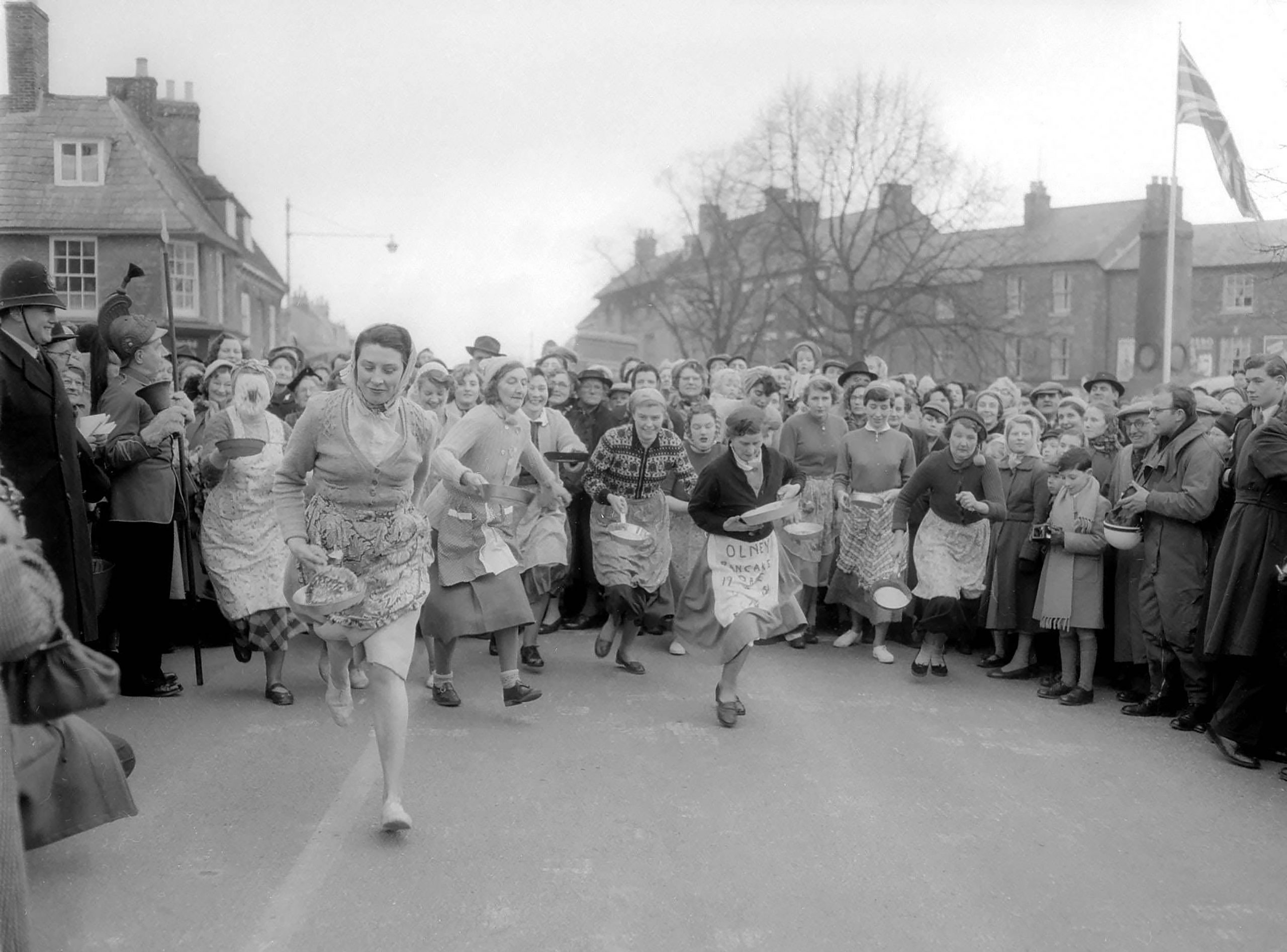
British towns and villages often have their own quirky traditions, and few display them quite as ardently as Olney on Pancake Day, says Nancy Alsop
At 11.55am on Pancake Day in the Buckinghamshire town of Olney, a church warden will command a group of 20-or-so well-primed women to toss their pancakes. This eccentric instruction will coincide with the sounding of the church shriving bell, its toll calling the townsfolk to be shriven of their sins before Lent.
And with that commences a 415-yard race, whose history stretches back centuries, distinguishing it as the oldest pancake race in the world. The criteria binding participants? They must have lived in Olney for a minimum of three months and be aged over 18.
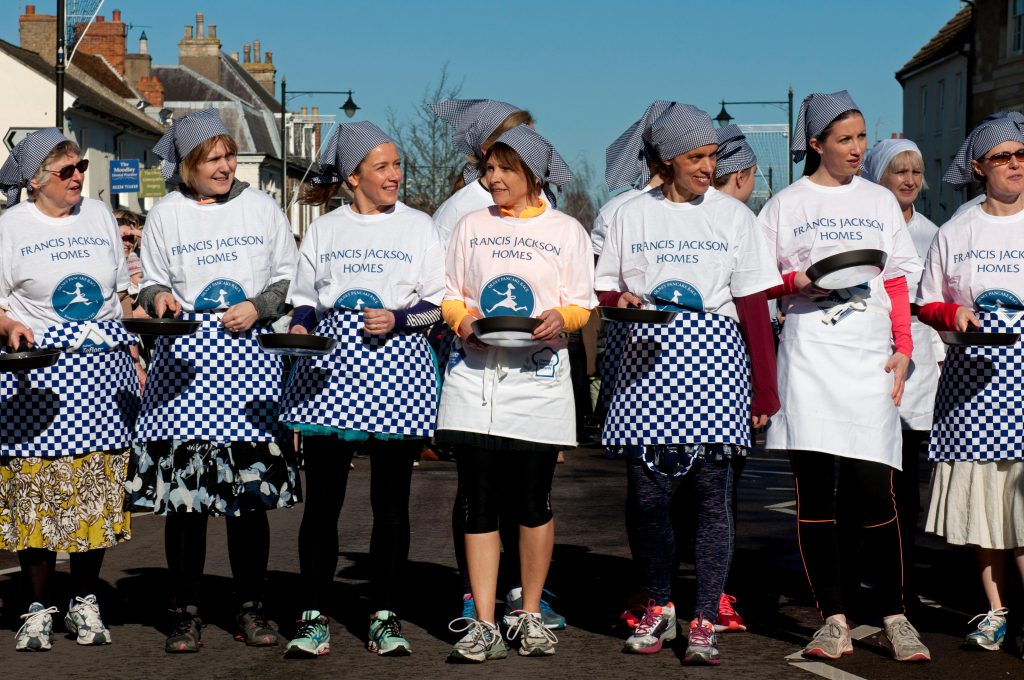
That is not to say that the race is without rules. On the contrary, the good people of Olney take their flipping very seriously indeed – and it isn’t only speed that’s of the essence. The women must be able to toss their pancake intact at the finish line if they wish to be crowned victorious, all while wearing a skirt and a headscarf – because what is an eccentric British custom without a costume?
Mercifully, the townsfolk are generous with their rewards: as well as a prize for the fastest, there are also baubles for the oldest participant and the one who raises the most for charity.
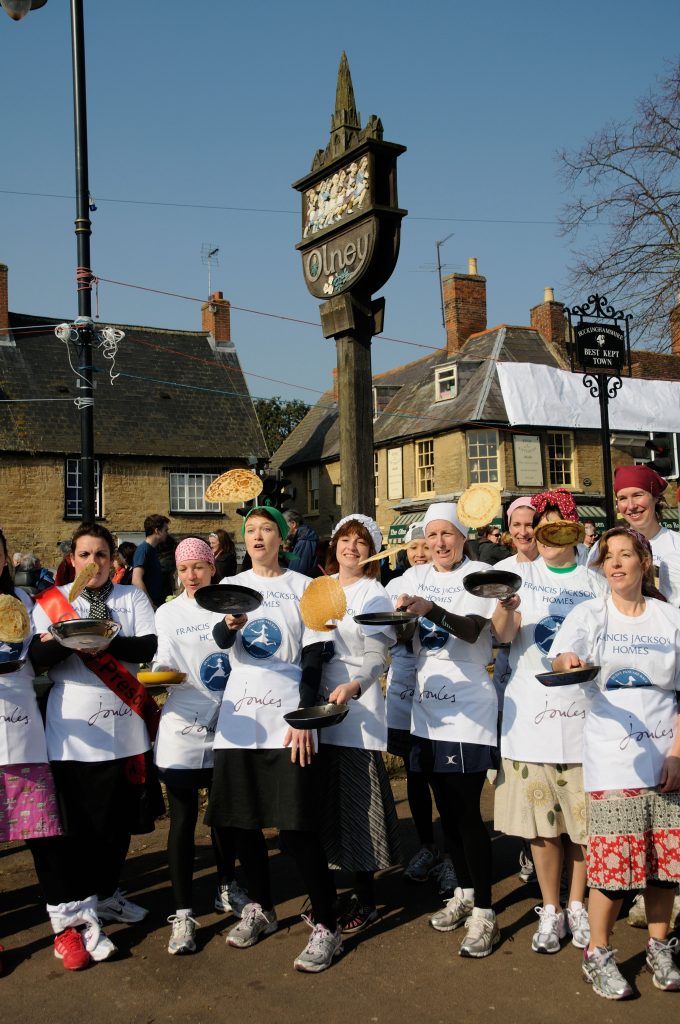
The Pancake Day tradition is said to stretch back to before the Wars of The Roses, having begun in 1445. Quite how it all started is still debated. The most popular theory goes that proceedings can be traced back to the year a harassed housewife scurried to church upon hearing the shriving bell, her frying pan – complete with pancake – still in hand. Another goes that the people of Olney, keen to kick off the day’s merriment, would bribe the sexton with pancakes to ring the bell early and thus initiate the revelries.
Olney’s race has fallen into fallow periods over the centuries, notably during the Second World War. But ever since peace was restored, so the race has been too. And for that, Olney’s pancake flippers can thank the Reverend Canon Ronald Collins who, upon unearthing photographs in 1948 of festivities from the thirties, resolved to revive the custom. It has stuck, even garnering international admirers. In 1950, the town of Liberal in Kansas, USA, began emulating the tradition and, to this day, the incongruously coupled towns compete annually for the fastest time.
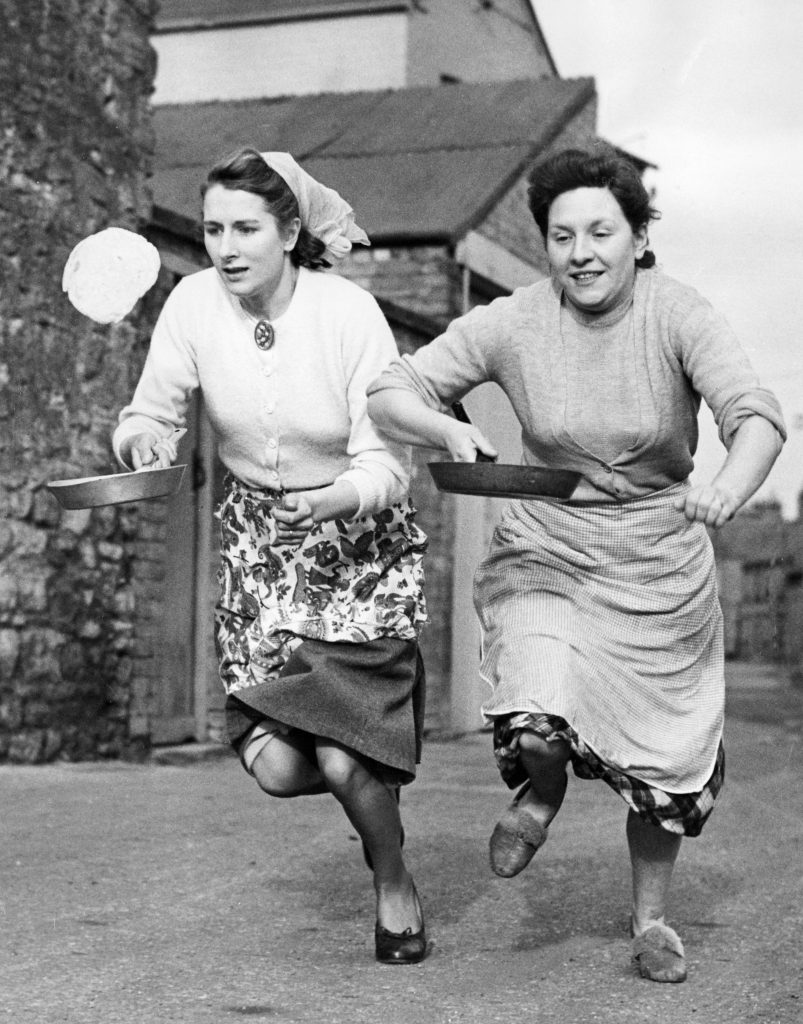
The tradition of eating pancakes on Shrove Tuesday (or Pancake Day) – the day when Christians historically confessed their sins to be granted absolution – marks the last hurrah before Lent’s 40 days of fasting, in part to use up stores of dairy products. The races, meanwhile, were held because the faithful were expected not only to relinquish indulgent food but frivolous pastimes too. And, as befits the idiosyncrasies of British tradition, the day has thrown up a number of unusual rituals over the centuries.
One such is The Greaze. Since the mid-1700s, London’s elite Westminster School has hosted an annual pancake day scramble, a chaotic event that sees the school cook toss a pancake over an iron bar, while the pupils compete to grab the largest scrap, after which the Dean of Westminster grants the whole school a day’s holiday. In 1919, it was even attended by King George V and Queen Mary, with the two future monarchs in tow too: their sons, the future Edward VIII and George VI.
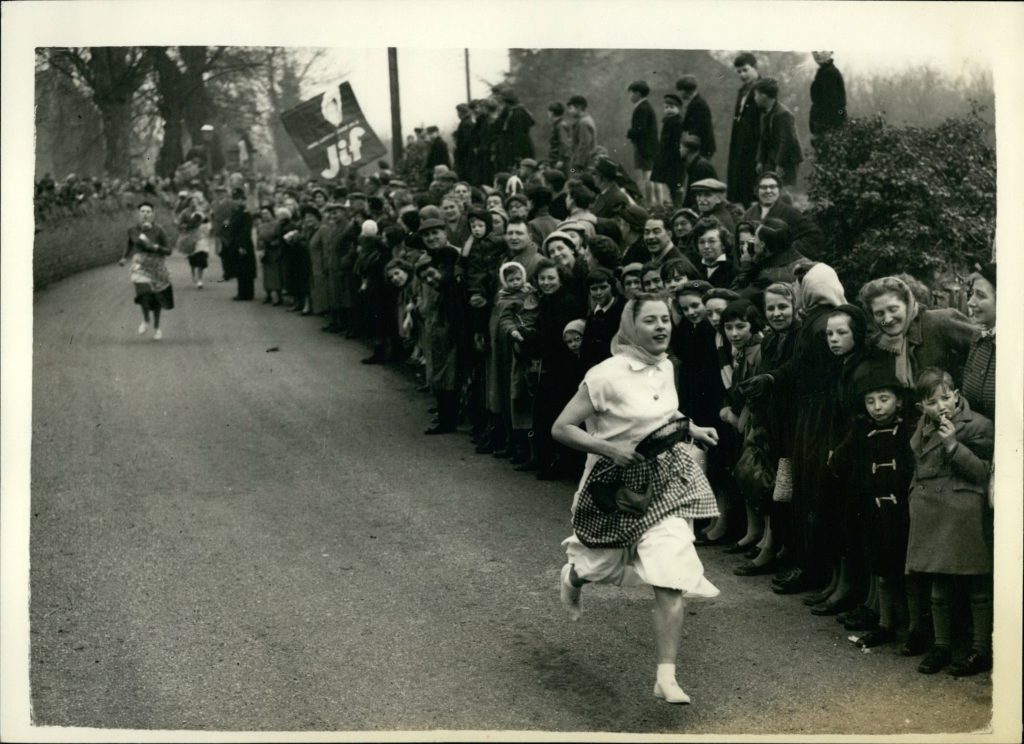
But Westminster School is not alone in marking the event with a physical tussle. Shrove Tuesday seems to have elicited some violent tendencies amongst the British populace, with Samuel Pepys describing gobbling pancakes while watching ill-fated cockerels being tied to a stake and pelted to death.
Thankfully, the 12th-century ‘Shrovetide’ football games were somewhat less violent, as whole communities would compete to successfully convey a ball from one end of the town to another. And, whilst that particular marking of Lent might have gone the way of the cockerel cudgelling, the Derbyshire town of Ashbourne still flies the flag for the tradition; an annual semi-lawless game of football sees the town fight it out over two days to land the ball into one or other of the goals, each three miles apart.
These days, most of us celebrate with a twist of lemon and a sprinkling of sugar. This year, however, we’ll do so in bonnet-wearing style while sparing a thought for Pepys’ poor cockerel and the pupils of Westminster School as they prepare for the rough and tumble of the fray.
For more, visit olneypancakerace.org
Read more from Discover Britain:



